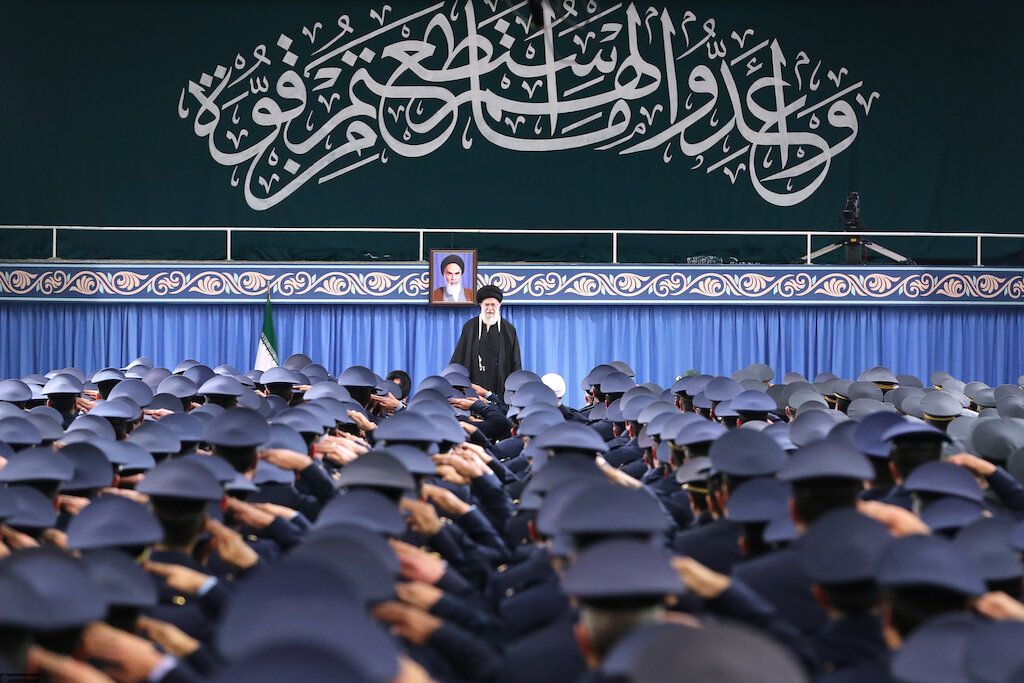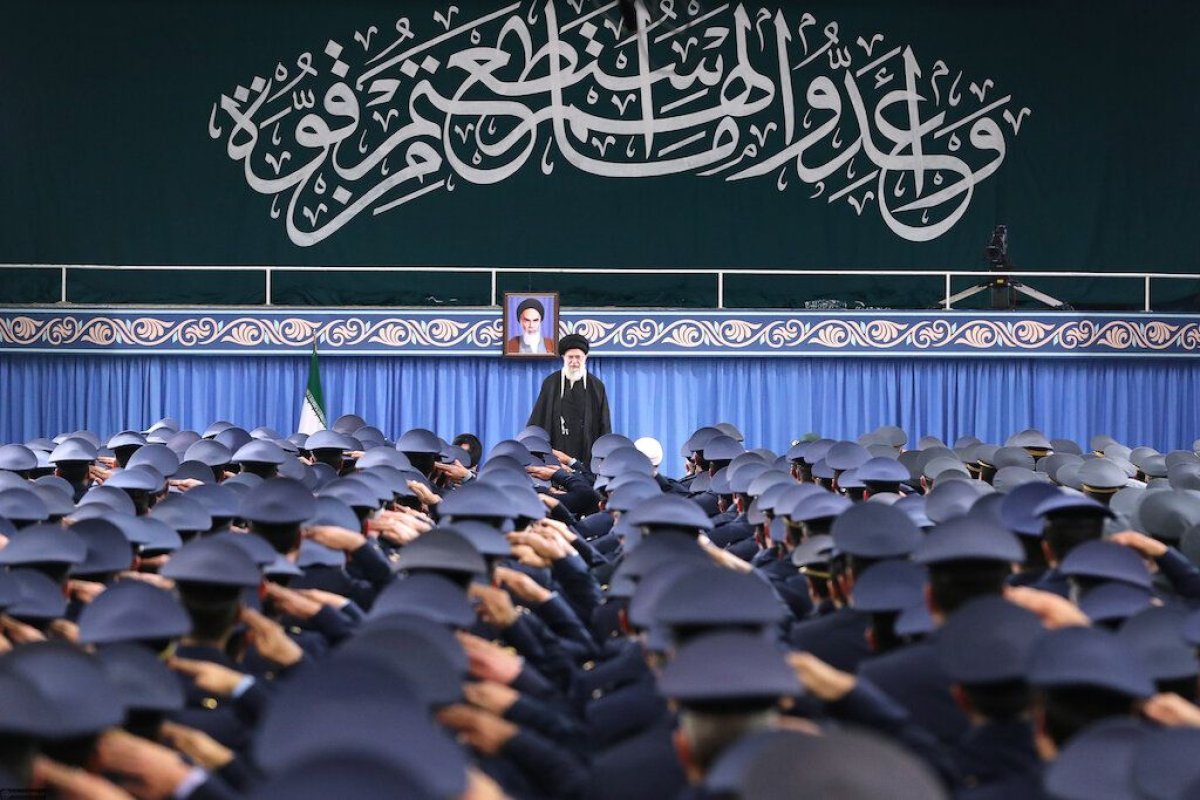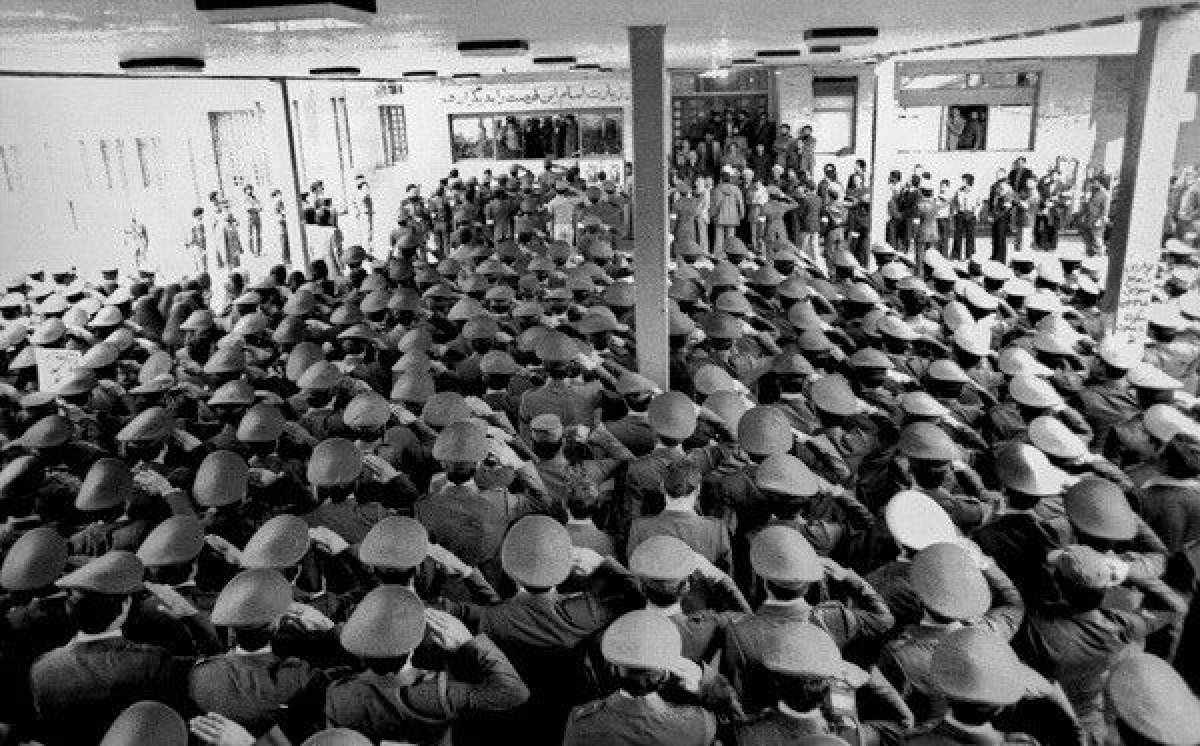
Iran's supreme leader has defined one of his country's most prolific slogans against the United States as targeting the political leadership in Washington, specifically President Donald Trump and his top officials.
As Iran continues to celebrate the 40th anniversary of the Islamic Revolution that ousted a West-backed monarchy, the words "Death to America" have been chanted at countless rallies across the nation. On Friday, Ayatollah Ali Khamenei said this signature chant was directed at the Trump administration, including the president, national security adviser John Bolton and Secretary of State Mike Pompeo. He argued that the U.S. was "the embodiment of evil, violence, crisis-making and warmongering."
"The U.S. officials, while insulting the Iranian nation, ask why you say 'Death to America,'" Khamenei told an air force gathering. "First of all, I want to tell the American people that 'Death to America' means 'Death to Trump, Bolton and Pompeo.' It means down with the American politicians in charge, who are currently represented by the aforementioned persons."
'Death to America' means 'Death to the few American rulers who are running that country.' We have no fight to pick with the American people," he added. "As long as the United States shows viciousness and savagery, the slogan 'Death to America' will never fall from the mouth of the powerful Iranian nation."

The motto, which has rung throughout the four decades of the revolutionary Shiite Muslim republic, has been portrayed in the U.S. as a call for total destruction and a lasting symbol of an enduring hostility between two countries with a difficult history.
The pre-revolutionary Shah Mohammed Reza Pahlavi was a close ally of the West and, when his authority was challenged by a democratically elected prime minister who sought to nationalize the country's oil reserves in 1953, the CIA helped to stage a coup to depose him and reinstall the monarch. The shah would go on to rule for another quarter of a century before a 1979 uprising, during which U.S. diplomats and staff were captured and held hostage at Washington's embassy in Tehran for 444 days.
The longstanding feud between the countries was also briefly interrupted with the forging of a nuclear deal in 2015, but the agreement was abandoned last May by Trump, who accused Iran of using assets unfrozen by its willingness to curb nuclear activity toward funding U.S.-designated terrorist organizations and developing ballistic missiles. Washington and Tehran have also increasingly been on a collision course in the Middle East.
Despite both opposing the Islamic State militant group (ISIS), the U.S. and Iran have supported opposing political forces across the region and have accused one another of pursuing a destabilizing agenda. Trump had pushed for scaling back the multiple, overlapping U.S. conflicts abroad, but Bolton and Pompeo were among those who have sought to expand these operations to include isolating Iran.

Trump dedicated part of his State of the Union address Wednesday to attack "the radical regime in Iran," to which Iranian Foreign Minister Mohammad Javad Zarif responded by tweeting that "US hostility has led it to support dictators, butchers & extremists, who've only brought ruin to our region."
The following day, Pompeo told Fox News Business that the U.S. was in the process of forming an Arab coalition akin to the NATO Western military alliance in order to counter Iran. The U.S. was set to co-host a summit with Poland next week in Warsaw to discuss Iran.
The European Union and the three of its members who signed the 2015 nuclear deal—France, Germany and the United Kingdom—have sought to save the agreement in the wake of the U.S. exit. These powers launched an initiative known as the "Special-Purpose Vehicle" last week in order to circumvent U.S. sanctions and continue to trade with Tehran.
Uncommon Knowledge
Newsweek is committed to challenging conventional wisdom and finding connections in the search for common ground.
Newsweek is committed to challenging conventional wisdom and finding connections in the search for common ground.
About the writer
Based in his hometown of Staten Island, New York City, Tom O'Connor is an award-winning Senior Writer of Foreign Policy ... Read more
To read how Newsweek uses AI as a newsroom tool, Click here.








